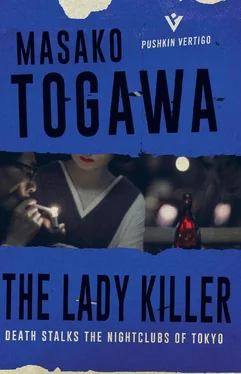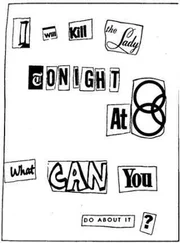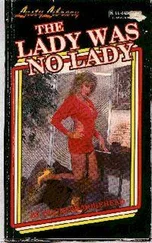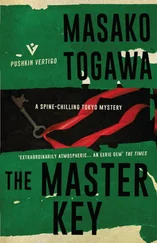The brief description in the list prepared by the detective agency described her as being about twenty-seven, but she looked much older. Shinji waved her into a chair.
“I’m defending Ichiro Honda. Could I speak to you about him, please?”
She nodded and, remarking that this was a topic to be discussed without haste or interruption, led him over to a table in a discreet position at the corner of the room. They ordered drinks and Shinji embarked upon his interrogation.
“Tell me, please, if, within the limitations of your own knowledge or experience, there was anything abnormal about Ichiro Honda?” He gazed intently into her face, trying to appear as businesslike as possible.
“I suppose what you are really asking is, did he ever try to strangle me?” the woman answered frankly. It seemed to Shinji as if Shoko Toda had been asked this question before and was prepared for it, so that she immediately grasped its import.
“It seems as if the police have already asked you the same question. Would I be correct in presuming that? Did they examine you on the same point?”
“Examine me? Forced me to speak, rather,” the woman replied, her face suffused with cynicism. “They asked me again and again, ‘What sort of relationship did you have with Honda?’ Really! ‘What sort of a relationship’… a pretty indelicate way of putting things, don’t you think? I was furious with them; I almost wanted to spit in their faces. The relationship between a man and a woman, what passes between them in bed and so forth, really, what can it have to do with the police? Then it dawned upon me that the term ‘what sort of a relationship’ is just a cliché of police interrogation. But how does one answer such a question in just a few words? The relationship between a man and a woman is not such a simple thing, I told them.”
The woman paused and, extracting a cigarette from her case, broke it in half carefully before putting it into a long ivory cigarette holder. She lit it, blew the smoke over Shinji’s shoulder, and went on talking.
“So as a result we beat about the bush for at least an hour before I realized that what they were getting at was whether or not Ichiro Honda displayed any abnormal behavior. It became clear to me that they wanted me to say that he put a tie or a rope around my throat whilst we were making love. Those police! What a race apart they are, with their narrow little imaginations. To them, Lady Chatterley, the Marquis de Sade, they are nothing more than pornography; they don’t know what pornography is, that’s what I say.” A sort of grandeur entered her speech, and she went on.
“I am an actress, or at least a woman who lives out her life on the stage. What could please me more than to play the role of Othello’s wife, if that is what my audience wants. However, somewhat to my regret, I did not find Ichiro Honda to be a man of such unique and elevated tastes. He was just an ordinary man after all.”
“You mean that there was nothing abnormal about him?”
“If you accept that sex is not of itself abnormal, then he was in all other respects normal.” Again the cynicism showed through her mask.
“How did you meet him?”
“Well, these things are all a matter of timing, aren’t they? I was lonely, needed someone to talk to and so forth, and I suppose the same applied to him. Anyway, his seduction was just like dancing. He led and I followed. It was all very smooth. Do you know what he gave me? A paper umbrella with a bull’s-eye pattern! Rather original, don’t you think? That appeals to a woman, you know. And that voice of his… so sweet, so soft, so low. He really did look like a man of mixed blood; it was very romantic. And he said his work was importing films for TV—that was romantic, too.”
“And how many times did you see each other?”
“Oh, only the once. Yes, just once.” And suddenly she burst into a sudden laughter that contorted her body.
A man came across the room and joined them, a man wearing tight trousers and with his hair loosely permed. It was the pianist.
“I hear you are Ichiro Honda’s lawyer—the waiter told me. Look, I’d love to go and see him in prison—could you fix it up? I’ll make it worth your while.” The man’s voice and gestures were effeminate and Shinji felt a deep repugnance as the man laid his hand on his shoulder. Was he trying to make a fool of him? he wondered. But the man seemed deadly serious. Ignoring him, Shinji stood up and addressed Shoko Toda.
“Thank you for telling me what you have. Could I ask you one more question? Do you believe that Ichiro Honda is a murderer and a pervert?”
She removed the cigarette holder from her lips.
“I am someone, perhaps the only person, who believes his apparently absurd protestations of innocence.” She fell silent and began to muse, a dreamy look in her eyes, as if she was reviewing sweet memories.
He climbed the stairs and drew a deep breath as he made his way into the street. That was another world down there, its denizens, perhaps, people who feared the light of day. He made his way to the subway station at Nishi Ginza and boarded a train headed for Shinjuku. And in the tunnels he became overcome by an obsessive urge to get off at Yotsuya Sanchome. It was there, he remembered, that Ichiro Honda had had his hideout.
He cast his mind back to the trial, to the severe cross-examination of Honda by the public prosecutor on the question of the secret apartment. Honda, the prosecutor insisted, kept this lair with its supply of clothes, the better to commit his crimes. The prosecutor got quite carried away, his language becoming ever more elegiac and anti-quated as he described the fiendish cunning of the criminal. The memory made Shinji smile. For to him Ichiro Honda’s motives were crystal clear. The profession of an engineer was a serious one; what more natural than that he should wish to discard it for a disguise and wander the town in casual clothes?
As the prosecutor had spoken, all Honda could do was to mutter such phrases as “to refresh myself” in response to the barrage of questions and accusations. Honda’s demeanor was that of a man who has given up trying to explain himself; this plainly left the judge with an unfavorable impression of him despite the attempts of the defense to explain that Honda’s changes of clothing had been quite innocent, that all he was seeking was a sense of freedom. How could the world possibly be convinced that the freedom that Honda sought was just the freedom to seduce women? Shinji sat crushed into the corner of his seat reflecting that it was not so much the law as morality that had brought its guns to bear upon Ichiro Honda. With morality on the side of the prosecution, what chance could the defense have?
So even when the defense lawyer had spoken of the existence of Honda’s diary and of how it had vanished, and also when he had spoken of the booby trap set in the wardrobe, the response of those who listened had been disbelief tinged with secret laughter.
Shinji obeyed his instinct and alighted at Yotsuya Sanchome, making his way to the pay phone in a small tobacconist. He rang the Wada law office and asked for the address of Honda’s hideout. The clerk at the other end of the phone kept him waiting for some time; it was plain that the Wada law office, having lost their exclusivity over Honda, had lost some of their interest in the case.
The sun beat down on Shinji’s head as he waited. At last the clerk came back and grudgingly, it seemed, gave him instructions as to how to get to the Meikei-so. It all seemed quite simple.
“Turn left by the sushi shop, you say, and then walk fifteen yards. Is that all?” Shinji scribbled feverishly on the memo pad by the phone. A ten-minute walk, that was all, it seemed. He made his way down the road. It was a very quiet area: there was a telephone exchange, a lumberyard—those were the sort of places that stood around the Meikei-so.
Читать дальше












